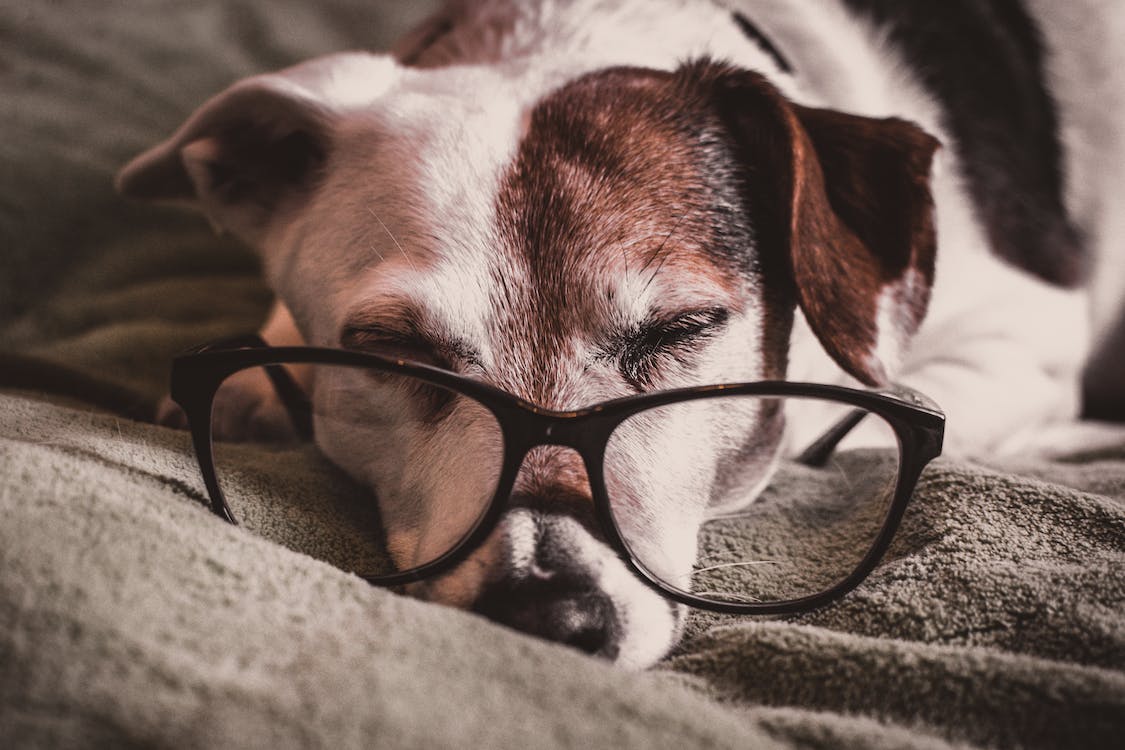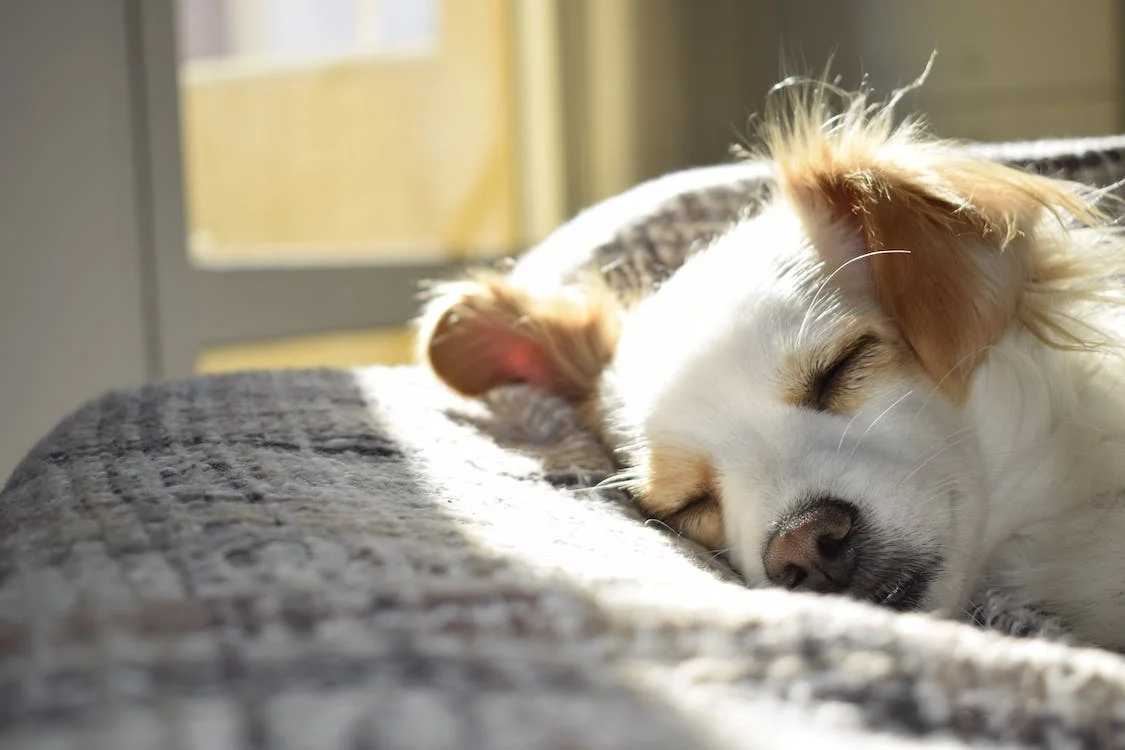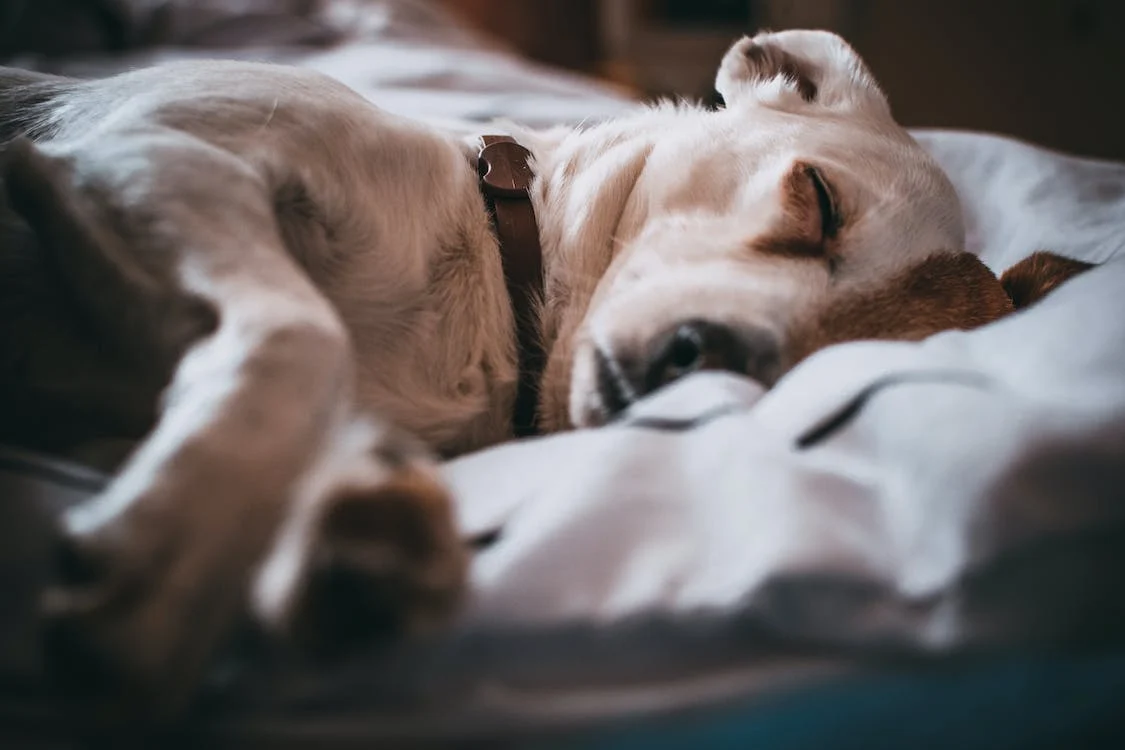It can be frustrating when your dog wakes you up by stirring restlessly, panting, pacing, or wanting to go outside in the wee hours. As a dog owner trying to get some shut eye, a pup who insists on repetitive middle-of-the-night wake up calls can leave you feeling drowsy and annoyed.
But your dog’s behavior isn’t necessarily random. Understanding the underlying causes for your dog’s night wakings provides key insights on how to resolve the issues and help both you and your pup get more peaceful sleep.
Common Explanations for Night Waking in Dogs
There are a few key reasons why man’s best friend might keep you up at night:
- Need to relieve themselves– Perhaps the most straightforward cause is simply that your dog needs to pee or poop at night. This is very normal. Older dogs and puppies in particular should be expected to need potty breaks after hours.
- Pain or illness– Physical discomfort from conditions like arthritis or skin allergies can cause waking and restless sleep. Some infections also cause symptoms mainly at night.
- Stress/anxiety– Many anxiety issues are worse in darkness. Separation distress is a classic reason for dogs to wake their owners requesting comfort. Storm phobia, travel nerves, or recent changes to their environment can also trigger anxious unrest at night.
- Loneliness/boredom– Dogs are highly social and can crave nighttime interaction. Puppies or dogs left alone all day may act out for attention when their family tries sleeping.
- Dementia – Senior, elderly dogs may develop canine cognitive dysfunction leading to night waking, pacing, confusion, and sometimes vocalization. This issue reflects progressive age-related mental decline.
- Hungry/thirsty– Some dogs wake in the night feeling hungry or thirsty if fed too little daytime food or if fresh water isn’t available overnight. Note that free-fed pets should not constantly feel compelling hunger but can wake handlers when thirsty. This issue may require veterinary assessment.
If your dog’s night wakings seem directly linked to needing to potty only 1-2 times, this would not necessarily constitute abnormal behavior. But if the reasons seem more complex or the waking frequency is excessive, targeted solutions will be needed for restful nights.

How Much Night Waking is Too Much?
There’s unfortunately no universal number of times per night that definitively categorizes waking as “too much.” The proper threshold varies based on your dog’s health conditions and age.
However these guidelines provide a general sense of when middle-of-the-night disruptions have exceeded normal limits:
- Puppies under 6 months should need potty breaks 1-2 times per night maximum, reducing in frequency as they age. Unlimited waking all night would be excessive.
- Adult dogs can typically make it 8 hours overnight after last potty visit. More than 2 wakes can indicate an issue (with exceptions for senior pets).
- Senior dogs (ages 7+) may require potty breaks 2-3 times in the night due to reduced bladder control – evaluate on an individual basis.
Also consider these factors when determining if your dog’s nighttime activity levels are disruptive versus normal:
- Consistency – Occasional waking is not as concerning as raising alarms every night without fail.
- Duration – If your pet wakes but settles quickly back to sleep that may be less problematic than staying revved up barking/pacing for long durations multiple times nightly.
- Impact – Note if waking episodes leave your dog stressed or you excessively sleep deprived. This level of disturbance points to a deeper issue needing addressed.
Use your discretion paying attention to context, health background, and the exact nature of the waking. Over time, patterns should emerge to help decipher root causes. From there appropriate solutions can take shape.

What to Do When Your Dog Keeps Waking You at Night
If you determine your pup’s overnight antics cross the line from normal to disruptive, implement these steps to preserve peaceful nighttime in your home:
Step 1: Identify Contributing Factors
Think through all potential medical, behavioral, and environmental factors explained above that could be driving your dog’s sleep disruptions. When do they happen – right at bedtime? Always at 3am like clockwork? All night long? Taking detailed notes over a 2 week period can uncover important causation insights.
Step 2: See Your Veterinarian
Share your observations about timing, behavior changes, and the nature of night wakings with your vet. They can best advise how age, medications, or health issues like cognitive decline, UTIs, anxiety, gastrointestinal upset, dementia and others may contribute. Medical causes would need treatment first before behavior-based strategies.
Step 3: Address Discomfort Proactively
If your dog sleeps directly on hard surfaces, sore joints or pressure points could wake them later. Provide analytical orthopedic beds allowing deeper, more comfortable rest. You can also discuss glucosamine or pain medications to make existing conditions like arthritis less bothersome at night.
Step 4: Reinforce Daytime Feeding Schedules
Ensure your pet fills their belly during daylight hours with quality nutrition. Discuss feeding routine adjustments with your vet if needed so hunger pangs don’t drive midnight snack seeking. This is particularly important for puppies rapidly burning daytime energy with growth and play.
Step 5: Improve Nighttime Potty Access
If your dog needs outdoor potties during sleeping hours, leash escort them to designated zones quickly without much fanfare to avoid wound-up energy. Accompanying them avoids accidents while social reinforcement could motivate repeat requests. Consider puppy pad options for accessible middle-of-night indoor potty area access if you have mobility limitations and taking them out doors multiple times would be unrealistic long-term.
Step 6: Manage Anxiety Triggers
Counteract storm, separation, travel, or other nervousness by using anxiety vests, pheromone diffusers, calmatives, white noise machines and medications if necessary in consultation with your veterinary behaviorist. Confine dogs prone to pacing or destructive behaviors while home alone to contained, comfy sleeping/relax zones to prevent scary run of house freedoms.
Step 7: Stimulate Dogs Both Mentally and Physically
Make sure your dog feels pleasantly worn out from ample exercise and mental challenges before bed. Try obedience classes, puzzle games/toys, chewy bones keeping jaws happily occupied for hours, sniffy walks allowing them to investigate intriguing environments at their own curious pace. A tired dog is a happy, restfully sleeping dog!
Step 8: Restrict Sleep Schedule Changes
Keep your pup’s nighttime sleeping space, bedtime routine, wakeup time etc consistent avoiding erratic fluctuations. Maintaining stability and predictability can help anxious prone or senior dogs better self-settle overnight vs looking to you for middle of the night playtime or attention.
Step 9: Use Calming Aids Before Bed
Leverage special bedtime treats, CBD oils, calming essential oil diffusers, and commercially available chews or supplements to relax your pup’s body and mind for drowsy pre-sleep states. Time their administration so they kick in as your head hits the pillow. Follow product instructions carefully.
Step 10: When Night Disturbances Persist, Consult Professionals
If despite diligent efforts sleep disruptions continue relentlessly, don’t hesitate to seek help from qualified veterinary behaviorists. They can assess medication options, high-tech motivators like “snuffle” feeding puzzles unusual dog preferences and make customized recommendations for your household’s unique situation informed by deep canine behavioral analysis expertise. You don’t have to continually lose sleep over what’s keeping your pup awake!
The right insights paired with tailored management and training can curb bedtime behavior issues for more restful nights ahead. Pay attention to key causal factors and don’t allow unwelcome overnight antics to become accepted status quo. You and your pup deserve great sleep.

Frequently Asked Questions
Q: My puppy wakes crying several times a night. What should I do?
A: Crying puppies often need to relieve themselves, especially very young pups under 12 weeks old. Calmly take them outside to go potty then put them immediately back to bed without coddling or energy build up. Allow this schedule until they can sleep through the night reliably. If crying continues despite potty trips, see your vet to address potential habit forming attention-seeking behavior before it escalates long-term.
Q: Is it okay to let my dog sleep in my bed with me?
A: Co-sleeping is controversial. Some experts warn this privileges restless behavior and energizes dogs through enjoyable contact. However, others recognize the calming, bonding nature for anxious dogs. Gauge honestly if bed sharing improves sleep for you both or interferes with rest helping bad habits take root. Hold to your personal boundaries about what works best in your home.
Q: My elderly dog started wandering the house and waking us very early around 5am. What can help her sleep better?
A. Senior dogs often grow restless as cognitive changes set in. Containing them comfortably nearby at night reduces disruptive wandering but still close enough for monitoring and quick potty assistance. Warm beds, night lights, anti-anxiety aids and medications may all help them feel less disoriented achieving calmer rest overnight. See your vet to optimize quality of life and rule out pain issues also interfering with sleep.
Q: I have a new puppy losing sleep over crate training struggles. Will he outgrow the crying?
A: Yes, with diligent, positive reinforcement crate training methods puppies usually adapt sleeping confined through the night by 16 weeks old. Make the space cozy and ignore pup’s bids for attention overnight to disincentivize crying. Ensure daytime feedings and potty breaks prevent physical urgencies disturbing sleep. All puppies progress differently so have patience helping them adjust at their own pace.
Q: My dog prefers to sleep in another room down the hall instead of my bedroom now. Should I make her stay closer?
A: Not necessarily. While you want dogs sleeping peacefully overnight, also respect their preferred rest locations. She’s showing confidence settling herself solo by choice in her own safe zone. If her newfound independence worries you, consider a pet camera allowing peeks in while giving her needed personal space. As long as she’s sleeping without disruption, this shift away from co-sleeping may signal positive maturity!



